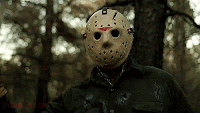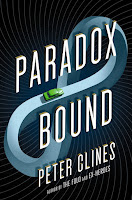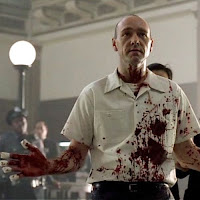I tried a few pop culture references for this week, but none of them seemed to work just right. They weren’t awful, but that’s the best I can say about them. They weren’t awful.
Speaking of which…
 A while back I mentioned an idea called Crap +1. It’s a viewpoint screenwriters Terry Rossio and Ted Elliott noticed (and named)–a common way some people approached screenwriting. It’s a mindset where I look at something absolutely horrible and say “well, my script is better than that.” And that got made, therefore logic and fairness dictate that my script deserves to get made, right?
A while back I mentioned an idea called Crap +1. It’s a viewpoint screenwriters Terry Rossio and Ted Elliott noticed (and named)–a common way some people approached screenwriting. It’s a mindset where I look at something absolutely horrible and say “well, my script is better than that.” And that got made, therefore logic and fairness dictate that my script deserves to get made, right?
I’m betting you’ve probably seen this reasoning applied to books, too, yes? And publishers? That garbage book got published, so of course the publishers are going to want to snatch up my slightly-better-than-garbage book. The bad book proves I deserve to be published just by existing.
It doesn’t work that way, of course. The big problem with the crap+1 theory is that what it really justifies is laziness. It assumes my work just needs to be “slightly better” to qualify as good. Which simply isn’t true. My story might be “better” than an illiterate piece of derivative fan-fic… but that still doesn’t mean my story is any good.
I’ve found this mindset also pushes a certain degree of entitlement. The idea that I’m somehow owed an equal form or level or success (logic and fairness, remember?). If that made it, I deserve to make it. At the end of the day, nobody else’s success has anything to do with my success. The universe—or a Big Five publisher—is not required to do something for me just because it did it for someone else who I feel is less talented/ less creative/ less determined/meaner/uglier than me.
It’s an easy trap to fall into. The crap + 1 mindset. Try to avoid it. In all aspects of your life.
Anyway, it struck me recently that some writers use this sort of logic and justification within their stories, too. Especially in the darker, grittier tales that some folks like. A lot of these stories operate under the idea that my character or their actions or the outcomes will be seen as good once we compare them to something worse. The story has unlikable, awful people as our protagonists or in the cast of supporting characters around them… but that’s okay because there are people in the story who are even more awful and unlikable.
Think about it. How often have we seen something where my protagonist is a violent, abusive, racist… but, wow, you should see the bad guy! My heroine just brutally killed two dozen people, yeah, but that’s not even half as many as her antagonist killed in an earlier scene. Hell, sometimes that bar is literally as low as “well, he didn’t try to rape any of them… I guess he’s the one we’re rooting for?”
How ridiculous is this when we stop and think about it? Yes, serial killer Jeffrey Dahmer was responsible for more deaths than Charles Manson, but that doesn’t mean Manson was a nice person. Yakko isn’t likable because he’s only cruel to women when he could be cruel to women and children.
 A. Lee Martinez (he of the wonderful Constance Verity books, among others) made an observation once. Being a good person is more than not being a bad person. This is fantastically simple and true. It’s fine to say Wakko’s not a serial killer, but that doesn’t make him a hero. Or even a good person. That’s the kind of dating logic “nice” guys use. “Well, I’m not going to treat her like crap the way some guys would—so why doesn’t she want to go out with me?”
A. Lee Martinez (he of the wonderful Constance Verity books, among others) made an observation once. Being a good person is more than not being a bad person. This is fantastically simple and true. It’s fine to say Wakko’s not a serial killer, but that doesn’t make him a hero. Or even a good person. That’s the kind of dating logic “nice” guys use. “Well, I’m not going to treat her like crap the way some guys would—so why doesn’t she want to go out with me?”
I’ve talked about this before when discussing characters, especially my main characters. They need to be likable. By which I mean, my readers need an actual reason to like them. A reason that counts as “good” when it’s divorced from any conditionals. Helping out someone in need. Showing restraint with power. Defending and supporting the weak. These are all inherently good actions that don’t need to be compared to anyone else’s to be good.
Not being awful is just… that’s the bare-bones minimum. It should be baseline human existence. It’s definitely not a quality to cheer about in my main character.
Along with the crap+1 idea, I think this is also a bit of binary thinking slipping in here. This character is marginally better than the antagonist, yes, but you know what else they are…? Not the villain. So, logically then, they must be the hero, right? I mean, who else can they be in my story?
And that brings me to one last aspect of all this. I’ve mentioned before the need for my characters to win. They can still get hurt, physically or emotionally–even die–but they need to succeed at their goals. Because my readers identify with the heroes, and they don’t want to identify with people who don’t win because it reflects back on them.
With this talk of being “slightly better than…,” it’s worth noting that the antagonist losing is not the same thing as the protagonist winning. They can be connected, but this isn’t always a nice Venn diagram overlap. If someone else stops the bad guy… that doesn’t mean my hero wins. If the antagonist somehow fumbles things themselves… that doesn’t mean the good guy succeeded. And if they villain just gives up and walks away… well… nobody’s really earned a victory parade for that.
My hero needs to actually be a hero…not just a rung above the villain. They actually need to win… not just be nearby when the plot is resolved. And all of this needs to be in my story, which is actually good… not just slightly better than someone else’s.
Next time… there’s something I’d like to discuss for the first time.
Until then, go write.









